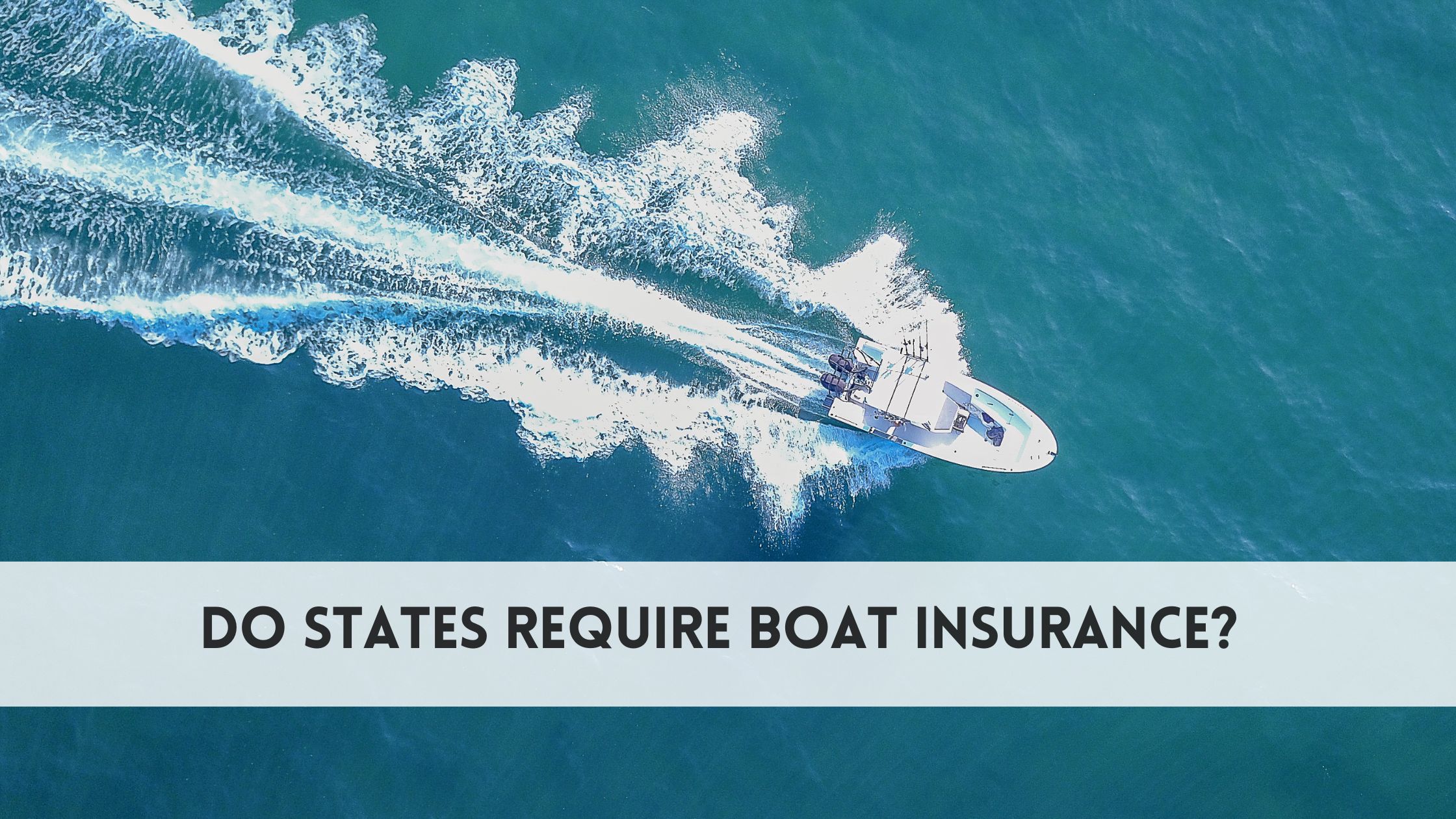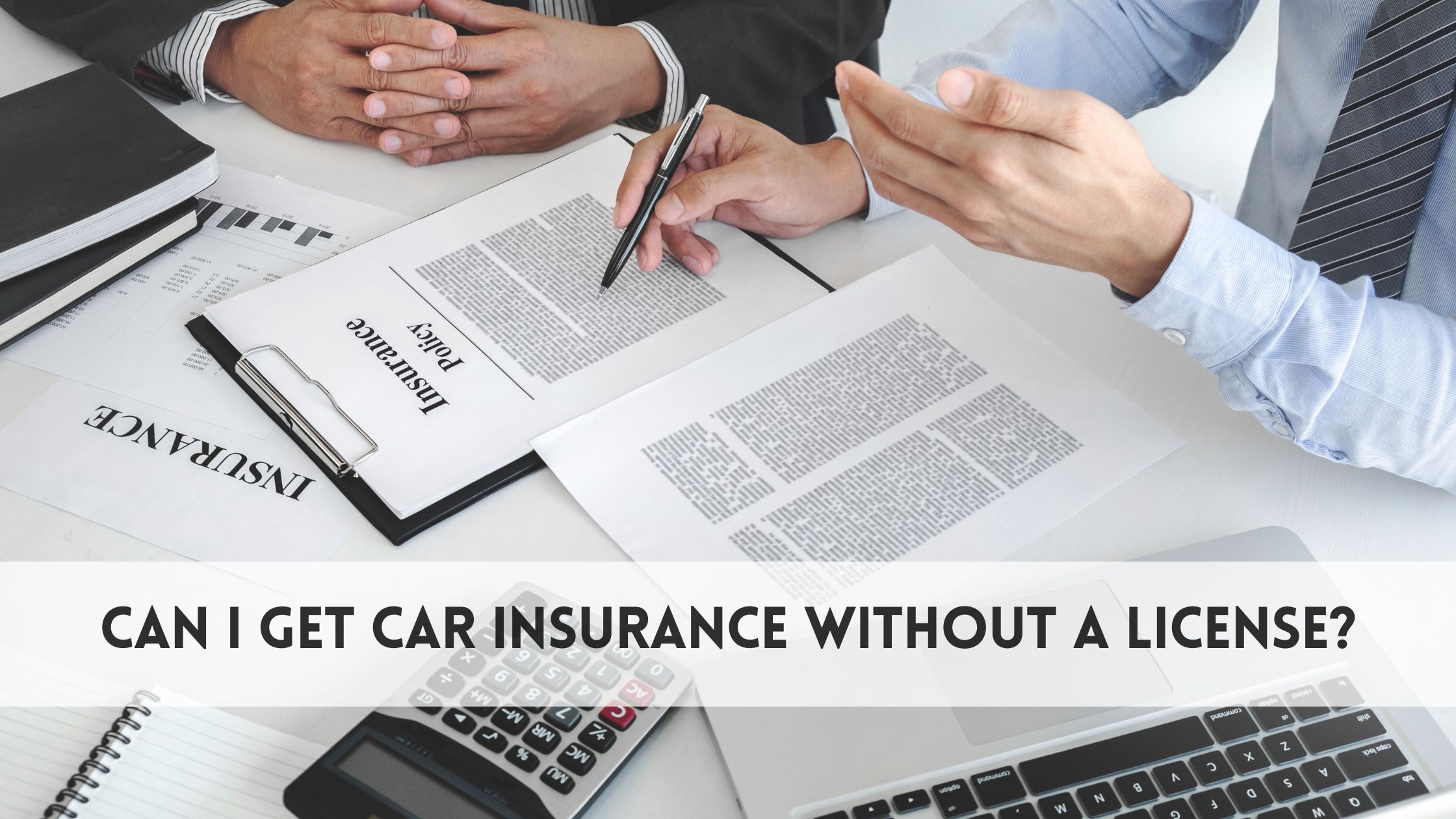Do states require boat insurance?

Owning a boat offers excitement and adventure, but it also comes with important responsibilities. One of the key responsibilities as a boat owner is ensuring that your vessel is properly insured. Many boat owners wonder, Do states require boat insurance? While the answer depends on the state, it’s essential to understand both the legal requirements and the benefits of having boat insurance, even in states where it’s not mandatory.
Some states have specific laws that require boat insurance, especially for certain types of vessels or if you’re operating in busy waterways. On the other hand, many states do not mandate boat insurance, but it remains a smart choice for safeguarding your boat, protecting against accidents, and covering potential liabilities. This guide will explore whether boat insurance is required in your state, why it’s still recommended, and what boat insurance typically covers to help you make an informed decision.
Do states require boat insurance?
The requirement for boat insurance varies by state and largely depends on the boat type and intended use. While many states do not mandate coverage for recreational boats, some do impose specific insurance requirements, particularly for larger vessels, commercial boats, or personal watercraft. For instance, boats used for commercial purposes or those with certain horsepower thresholds are often subject to mandatory insurance laws, especially in states with higher boating traffic or larger bodies of water.
Several factors contribute to the differences in regulations, such as the size of the boat. Larger vessels may require more extensive insurance coverage due to the increased risk of accidents or damage. The type of vessel also plays a role; commercial vessels or boats used in charter services are typically more regulated than private recreational boats. Additionally, the intended use of the boat can influence insurance requirements, as boats used in public waterways may need to meet higher safety and liability standards compared to those used solely in private settings.
Understanding these factors can help boat owners navigate their state’s specific regulations and determine whether insurance is necessary. Regardless of legal requirements, having insurance can offer significant protection against accidents, damage, and potential liabilities.
States Where Boat Insurance is Mandatory
While boat insurance may not be required in all states, there are several states where having insurance is either mandatory or highly recommended. The states that enforce boat insurance laws often focus on ensuring that boaters are covered for accidents, property damage, and liability. Here are some states where boat insurance is typically required:
California
California has strict boat insurance regulations to ensure that boat owners are adequately covered, especially for larger vessels. Boat insurance in California is mandatory for boats over a certain size, such as those that exceed 30 feet in length or have higher horsepower. This state-specific requirement is designed to protect both the boat owner and the public in case of accidents, damages, or liability claims. Additionally, larger vessels often need specific liability coverage to cover the potential risks associated with operating in busy waterways, such as the Pacific Ocean and numerous lakes and reservoirs. Insurance also protects from theft, vandalism, or damage due to natural events like storms.
Florida
Florida is known for its expansive coastline and boating culture, making it a state with high boating traffic. As a result, Florida boat insurance is required for vessels over 26 feet long or those with certain horsepower specifications. This regulation ensures that boaters are covered for potential accidents, damages, and injuries caused while navigating popular Florida waterways, including the Atlantic Ocean and the Gulf of Mexico. The requirement aims to protect both the boat owner and third parties, including other boaters or property owners. Even if you own a smaller boat, it’s recommended to consider getting insurance, as it provides peace of mind and safeguards your investment in the state’s bustling boating community.
New York
In New York, boat insurance is required for certain types of vessels, including personal watercraft (like jet skis) and some other boats that are used in public waters. Boat insurance in New York ensures that boat owners are protected in case of accidents, liability claims, or property damage. The state’s waterways, including the Hudson River and the Finger Lakes, are popular for recreational boating, making adequate insurance essential. New York typically mandates liability insurance for watercraft owners to ensure that if an accident occurs, the costs of damage or injury to others are covered. Whether you’re operating a large boat or a small watercraft, complying with the state’s insurance laws is critical to ensure legal protection.
Texas
Texas, known for its vast lakes and rivers, has a more relaxed approach to boat insurance compared to other states. Boat insurance in Texas is not mandatory for most recreational vessels. However, insurance is highly recommended for larger boats, as these vessels can cause significant damage in case of an accident. Additionally, having boat insurance in Texas provides financial protection against potential liabilities, including accidents that may lead to injury or property damage. While there is no legal mandate for recreational boats, many boat owners in the state choose to invest in insurance for peace of mind, especially for boats used on larger bodies of water like Lake Travis and the Gulf of Mexico.
Why Are These States Stricter?
States like California and Florida have stricter boat insurance laws due to their large boating communities and the popularity of their waterways. These states see a high volume of boat traffic, particularly in areas like California’s coast and Florida’s numerous lakes, rivers, and the Gulf of Mexico. With so many boats on the water, the likelihood of accidents, property damage, and injuries increases significantly.
This higher risk makes it essential for boat owners to have insurance coverage that protects them financially in the event of an incident. Mandatory boat insurance laws are enforced to safeguard both boat owners and the general public from potential liabilities. By requiring boat insurance, these states ensure that responsible boat ownership is maintained and that financial resources are available to cover damages, injuries, or losses. These regulations provide peace of mind and foster a safer boating environment for everyone.
Why Boat Insurance is Still Important, Even if Not Required?
Even if you live in a state where boat insurance is not required, it is still crucial to consider having it. Here are several reasons why:
Financial Protection from Accidents
- Liability Coverage: Insurance helps cover the cost of property damage and injuries caused to others in an accident. Without coverage, you could be responsible for significant out-of-pocket expenses.
- Medical Expenses: If someone is injured during an accident on your boat, insurance can cover medical costs, ensuring you don’t have to bear the financial burden alone.
- Repair Costs: In the event of an accident, repairing your boat can be expensive. Boat insurance can help you avoid large repair bills, making the recovery process easier.
- Legal Costs: If an accident results in a lawsuit, insurance can help cover legal fees, providing you with financial protection during potentially lengthy litigation.
Protection from Theft or Vandalism
- Full Replacement: If your boat is stolen, having insurance ensures you can replace it without incurring a financial loss, depending on your policy’s coverage limits.
- Vandalism Coverage: In case your boat is vandalized, your policy can help cover the cost of repairs, protecting you from paying for damages caused by others.
- Equipment Protection: Many boat insurance policies also cover theft of onboard equipment such as electronics, fishing gear, or personal belongings, offering more comprehensive protection.
- Seasonal Protection: If your boat is left unattended for a long period, like during winter storage, insurance can cover potential risks like theft, vandalism, or damage that may occur while the boat is out of use.
Peace of Mind
- Emergency Coverage: In the event of an unexpected accident or damage, boat insurance offers a safety net, allowing you to focus on the recovery process without stressing over financial implications.
- Protection from Natural Disasters: Insurance provides coverage in case of damage from unforeseen weather events like storms, floods, or hurricanes, which are common in coastal areas.
- Reduced Stress While Boating: Knowing that you’re protected against potential risks can help you enjoy your time on the water with less concern, allowing for a more enjoyable boating experience.
- Comprehensive Coverage for Unexpected Events: From collisions to environmental hazards, having insurance ensures you are covered for a wide range of potential risks that could otherwise put a dent in your finances.
Required by Marinas and Lenders
- Marina Policies: Many marinas require proof of insurance before allowing you to dock or store your boat, as it protects them from liability in case of accidents or damages.
- Lender Requirements: If you financed your boat, the lender may require insurance to protect their investment, ensuring that the boat is covered in case of damage, theft, or other incidents.
- Boat Club Rules: Joining a boat club often comes with insurance requirements. These clubs typically want to ensure all boats are covered to avoid financial risk in case of accidents within club-operated waters.
- Protection During Storage: Insurance may be required for winter storage at certain facilities to protect against damage or theft, giving you peace of mind during off-seasons.
What Does Boat Insurance Cover?
Boat insurance can be customized based on the type of coverage you need. Here are the most common types of coverage provided by boat insurance policies:
Liability Coverage
Liability coverage is the most fundamental type of boat insurance. It protects in case you cause damage to someone else’s property or injure another person while boating. This coverage ensures that you are not financially responsible for repairs or medical expenses resulting from accidents where you are at fault. In some states, liability coverage is required by law, especially for larger boats or those used in specific waterways. Even if it is not legally required, liability insurance is essential for protecting yourself from potentially expensive lawsuits and claims that can arise from boating accidents.
Collision Coverage
Collision coverage helps pay for the repair or replacement of your boat if it is damaged in a collision. Whether the damage occurs due to an accident with another boat, an object in the water, or the shoreline, collision coverage will help cover the repair costs. This type of insurance is especially useful for those who often navigate busy or challenging waters, where the likelihood of an accident may be higher. Collision coverage ensures that you’re financially protected, even if the incident is your fault, reducing the financial burden on you.
Comprehensive Coverage
Comprehensive coverage offers protection for your boat against non-collision-related incidents. This includes damages from theft, vandalism, fire, or natural disasters such as hurricanes and storms. Comprehensive coverage provides peace of mind by covering a wide range of risks that could damage your boat when it’s not in use or while docked. It’s an essential option for boat owners who want to ensure that their vessel is covered under any circumstances, even when not directly involved in a boating accident. Comprehensive coverage can help you recover financially from unexpected events that could otherwise result in significant loss.
Medical Payments Coverage
Medical payments coverage is designed to cover the medical expenses of you or your passengers in the event of an accident or injury while on your boat. This coverage can help pay for hospital bills, ambulance services, or other medical costs that arise from a boating accident. Medical payments coverage is especially beneficial for situations where your regular health insurance may not apply. Whether the injuries occur due to a collision, slip, fall, or any other accident on board, this coverage ensures that medical expenses are taken care of, minimizing the financial impact on your family or guests.
Uninsured Boater Coverage
Uninsured boater coverage protects you in the event of an accident caused by a boater who does not have insurance or adequate coverage. If you’re involved in a collision with an uninsured boater, this type of coverage helps pay for your medical expenses, boat repairs, and other related costs. It’s especially important in areas where uninsured or underinsured boaters are common. This coverage ensures that you won’t be left financially responsible for repairs or medical bills caused by someone who lacks the proper insurance. Uninsured boater coverage is often an essential addition to your policy for complete protection.
Final Words
So, Do states require boat insurance? While many states do not mandate boat insurance, having coverage provides invaluable protection regardless of where you live. Boat insurance safeguards you from the financial impact of unexpected events, such as accidents, theft, vandalism, or damage caused by severe weather conditions.
Even in states where boat insurance is not a legal requirement, it’s a smart and practical decision to protect your vessel, your passengers, and your financial well-being. Without the proper coverage, you risk bearing the full cost of repairs, medical expenses, and liability claims. For boat owners, researching the specific insurance laws in your state and purchasing the right level of coverage is essential for both meeting legal requirements and ensuring peace of mind on the water. Don’t leave your investment unprotected—secure the right boat insurance to avoid unforeseen financial burdens and enjoy your boating experience with confidence.



